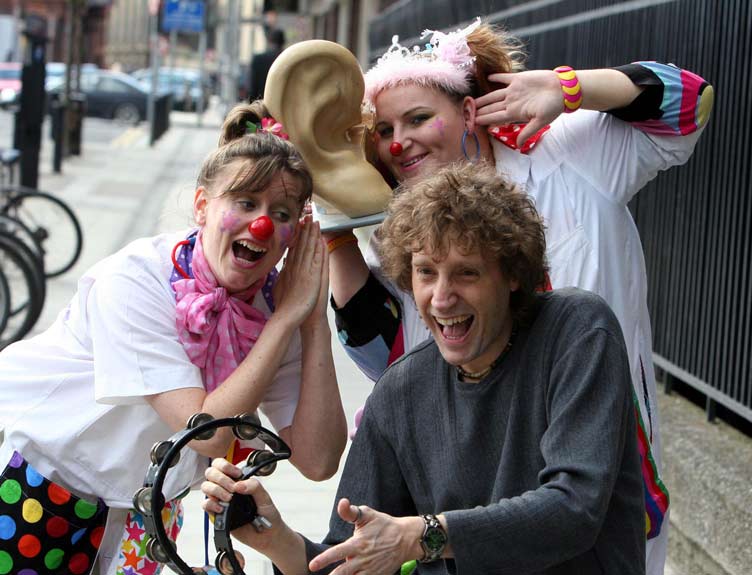Music, pleasure and the brain public lecture at RCSI

The power of music to stir a range of human emotions continues to enthrall music lovers worldwide. However, it also has a fascinating ability to elicit physiological responses such a reduction in blood pressure or increased breathing. These aspects of music which wield power over both the body and the brain were highlighted at a public lecture and musical demonstration in RCSI on Wednesday, 24 May.
Renowned physiologist Dr Harry Witchel from the University of Bristol, was accompanied by clarinetist Karl Dűrr-Sørensen and French horn player Dominic Nunns from the New London Orchestra, who together played enchanting, haunting, and brain-befuddling excerpts of music live on stage and show why some music makes us joyous, while other music makes us sad, angry, or anxious, and how the brain interprets this music.
Dr Witchel, who has appeared on Big Brother, BBC Television News, Irish National Radio and at the Cheltenham Festival of Science says “Music can stimulate our emotions. Some elements of music are registered in the same way as vocal sounds or the tone of a voice. Sometimes music brings on emotions that appear to conflict with each other.
Think of a scary movie, for example: a slow, staccato beat may be frightening but at the same time pleasurable because you know it is only a film.” Previous research has shown that many people work better if they like the background music. “Imagine how tedious aerobics classes would be without music with a lively beat,” says Dr Witchel. “Music is integral to our lives regardless of race or culture, and we want to discover how it wields such power over our emotions,” he continues.
Organised by the Education and Outreach Office and Communications Department at the Royal College of Surgeons in Ireland (RCSI), this event was sponsored by RCSI through its HEA-funded Programme for Human Genomics and the Physiological Society.



